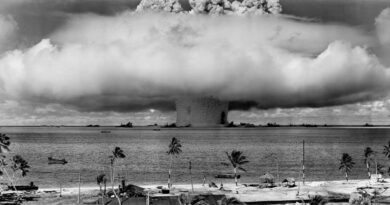Human Work and Play
Most paleontologists agree that the modern human species, the remaining type of Homo sapiens, has been around for about 200,000 years. It was Swedish zoologist Carl Linnaeus (1707-1778) who came up with the binomial or two-word nomenclature Homo sapiens in his groundbreaking “Systema Naturae” (10th edition), a taxonomic tome published 10 years before his death.
Translated from Latin, Homo sapiens means literally wise human, which, obviously, emphasizes the intelligence and knowledge that Linnaeus attributed to humankind. But, throughout the years, the Swedish scientist has had competition in the naming department as other people decided to propose alternative two-part names for humanity. A cursory review of the literature reveals that there are at least 55 of these alternatives, with each one of them underscoring a different human characteristic. Let me examine here just six of them. In alphabetical order, they are Homo economicus (economic human), Homo eroticus (erotic human), Homo faber (maker human), Homo festivus (partying human), Homo laborans (working human) and Homo ludens (playing human).
Homo economicus is big in models of game theory assuming that men and women make all their decisions based on perfect rationality. This doesn’t quite fit with the psychological dual-process theory, which proposes that a phenomenon can happen as an outcome of two different processes. A chief advocate of the latter theory, Harvard neuroscientist Josh Greene, says that in the brain there are two competing networks or subsystems. The first is the conscious, cognitive, or of appraisal, subsystem, and; the other, the unconscious subsystem, linked to rational and emotional responses, respectively.
Next, Italian screenwriters Piero Chiara and Marco Vicario popularized the term Homo eroticus in 1971 when their film with the same title was released to the general public, who loved it, judging from its ticket sale volume. This sexy comedy’s storyline consists of a supercharged triply-endowed Sicilian male, Michele Cannaritta (played by the unforgettable Lando Buzzanca), arriving to the mainland and wreaking havoc among members of the opposite sex, whether single or not.
On a more serious note, the German philosopher Theodor Litt (1880-1962), in his book “Thinking and Being,” developed his concept of Homo laborans, which 10 years later was changed to Animal laborans, a slight semantic distinction, by his fellow countryperson, political scientist Hannah Arendt (1906-1975). She distinguishes work – which she associates with Homo faber – from labor – which she associates with Animal laborans. For her, work is a superior condition to labor. The latter belongs to the realm of presence of necessity; the former transcends this realm, instead belonging to the realm of freedom from necessity. In her publication “The Human Condition,” she wrote: “From the standpoint of Homo faber, who relies entirely on the primordial tools of his hands, man is, as Benjamin Franklin said, a ‘tool-maker.’ The same instruments, which only lighten the burden and mechanize the labor of Animal laborans, are designed and invented by Homo faber for the erection of a world of things, and their fitness and precision are dictated by such ‘objective’ aims as he may wish to invent rather than by subjective needs and wants. Tools and instruments are so intensely worldly objects that we can classify whole civilizations using them as criteria.”
Then, the French essayist Philippe Muray (1945-2006) coined the descriptor Homo festivus, for the human being who conceives societal atmosphere as one of a permanent party, running counter to challenging action and critical thinking. “The party is no more in opposition, or in contradiction, with everyday life; it becomes everyday life itself, the whole everyday life and nothing but everyday life,” Muray said in his book “The Empire of Good.”
Finally, Dutch historian Johan Huizinga (1872-1945) penned his tome “Homo Ludens: A Study of the Play-Element in Culture.” Huizinga said that in the Homo ludens’ framework, as opposed to Homo festivus’, play or entertainment differs from ordinary life both in their geographical location and duration.
He wrote in his aforementioned book that play is “a voluntary activity or occupation performed within a certain, predetermined time frame and in a certain space, according to freely accepted, unconditionally binding rules; it is a purpose in itself, accompanied by the feelings of tension and joy, and by awareness of the difference from ordinary life.”
About the author: Miguel Balbuena is a writer in the academic, scientific, journalistic and literary fields (in the fiction and non-fiction genres).
